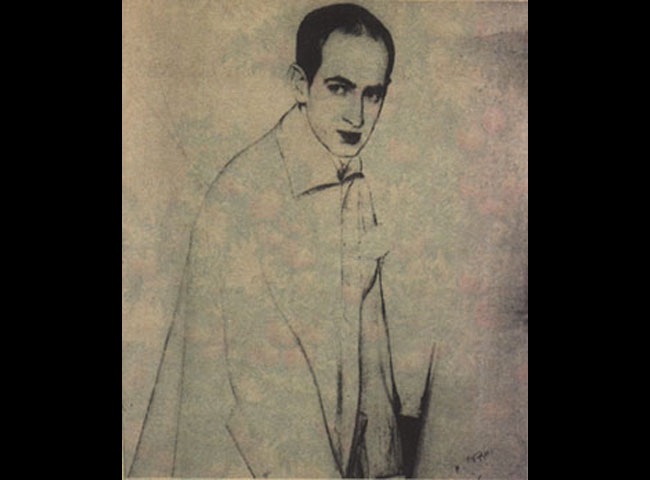Arthur Lourie, In Search of a Displaced Orpheus
-
Réalisé par Eline Flipse • Écrit par Eline Flipse
-
Pays-Bas • 1991 • 70 minutes • 16 mm • Couleur
- Réalisation :
Eline Flipse - Écriture :
Eline Flipse
- N° ISAN :
non renseigné
Résumé
Film au sujet du compositeur Arthur Lourie (avec la participation de Gidon Kremer).
Film about the Russian composer Arthur Lourie (with the participation of Gidon Kremer). Born into a prosperous Jewish family, in 1892, he converted to Catholicism while still in Russia. An admirer of van Gogh, from whom he derived the name 'Vincent', Lourié was partly self-taught, but also studied piano and composition at the Saint Petersburg Conservatory, graduating in 1913. He became friendly with the Futurist poets and particularly Anna Akhmatova, whose poetry he was among the first to set. Essentially he was the first Russian Futurist in music, and in 1914 was the co-signatory of the Petersburg Futurist Manifesto, ‘We and the West’, proclaiming principles common to all three arts. After the Revolution of 1917 Lourié served under Lunacharsky as head of the music division of the Commissariat of Popular Enlightenment. In 1921 he went on an official visit to Berlin, from which he failed to return. In 1922 he settled in Paris, where he became friends with the philosopher Jacques Maritain and was introduced to Stravinsky. From 1924 to 1931 he was one of Stravinsky’s most important champions, often becoming part of the Stravinsky household as he wrote articles about his fellow composer and preparing piano reductions of his works. He and the Stravinskys eventually parted company over a feud with Vera, and Stravinsky seldom afterwards mentioned his existence. A dialogue with Stravinsky’s works is evident, even to the extent that Stravinsky may have taken ideas from the younger composer: Lourié’s A Little Chamber Music (1924) seems to prophesy Stravinsky’s Apollon musagète (1927), his Concerto spirituale for chorus, piano and orchestra (1929) the latter's Symphony of Psalms (1930). Certainly in his later works Stravinsky adopted Lourié’s style of notation with blank space instead of empty bars. Lourie was also a talented painter. When the Germans occupied Paris in 1941, Lourié fled to the USA, assisted by Serge Koussevitzky. He settled in New York. He wrote some film scores but gained almost no performances for his more serious works, though he continued to compose. He spent over ten years writing an opera after Pushkin's Peter the Great's Negro, The Blackamoor of Peter the Great. Lourie died in 1966, forgotten and alone. From the musical world, only the composer Edgar Varese assisted at his funeral
Comment avoir accès au film ?
-
Édition DVD
- Il n'existe pas d'édition DVD à notre connaissance
-
Accès VOD
- Il n'existe pas d'accès en VOD à notre connaissance
- Distribution
- Aide sur les moyens d'accéder à un film
